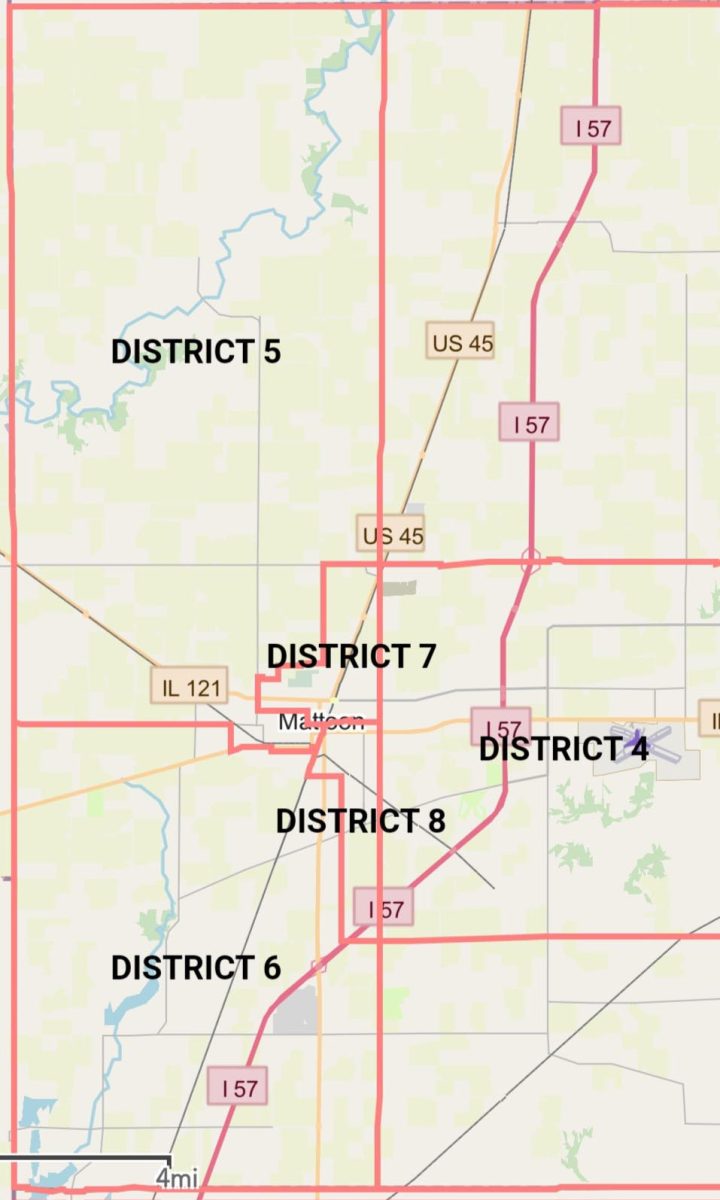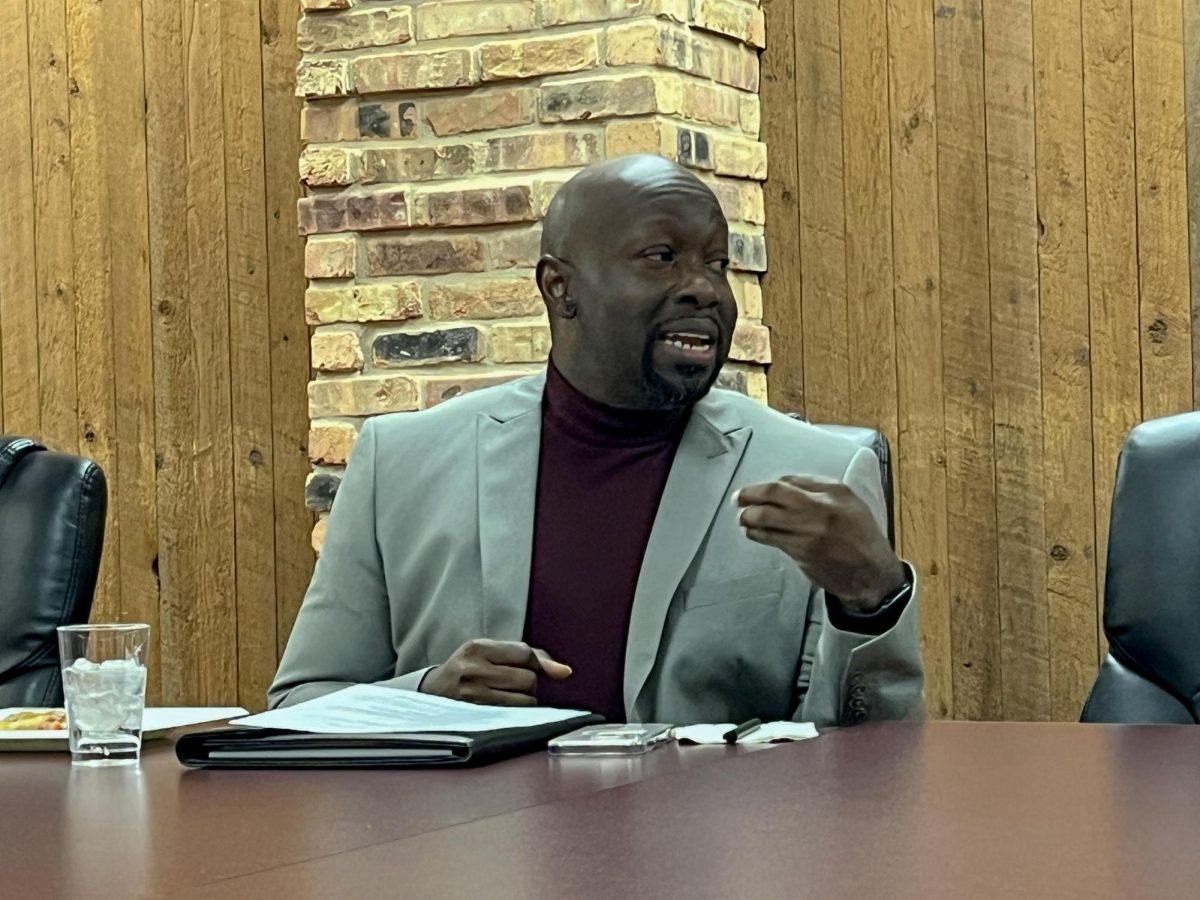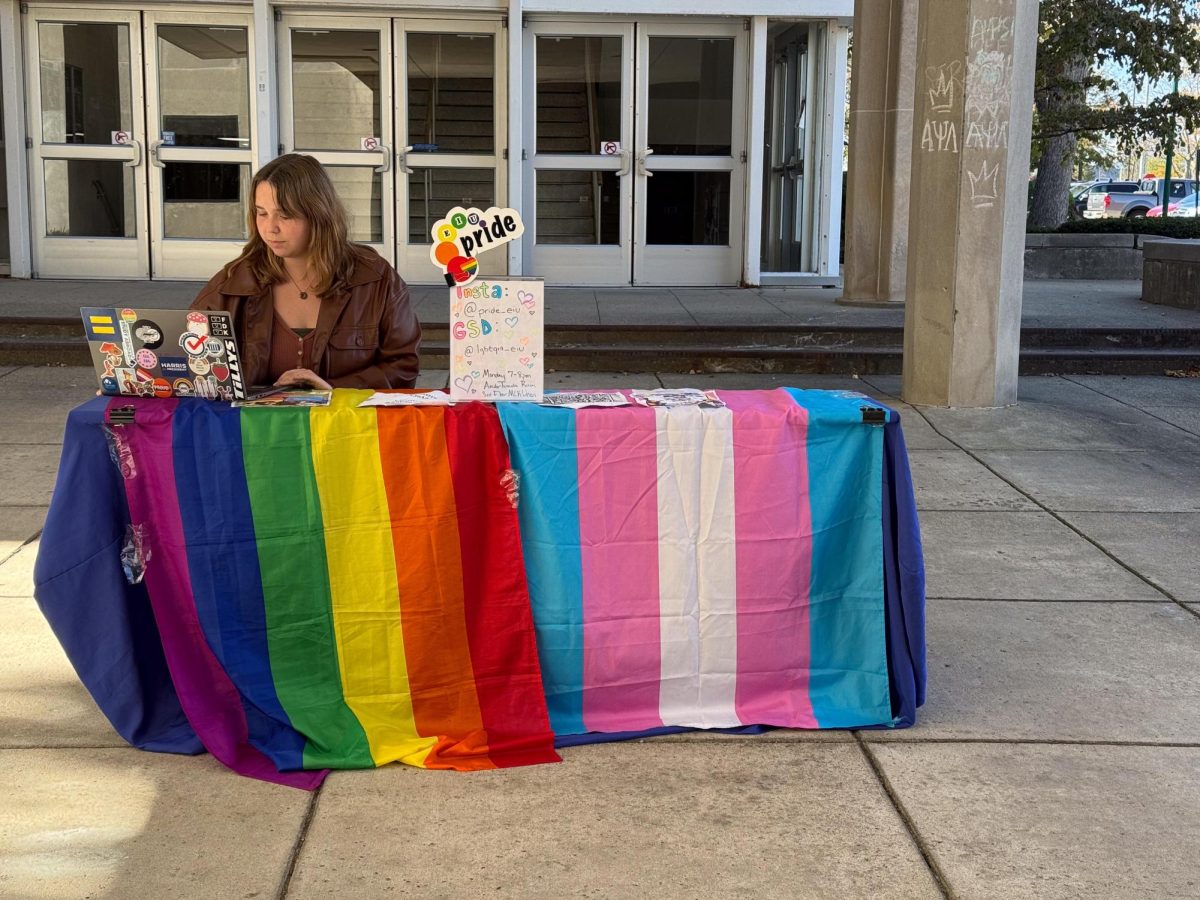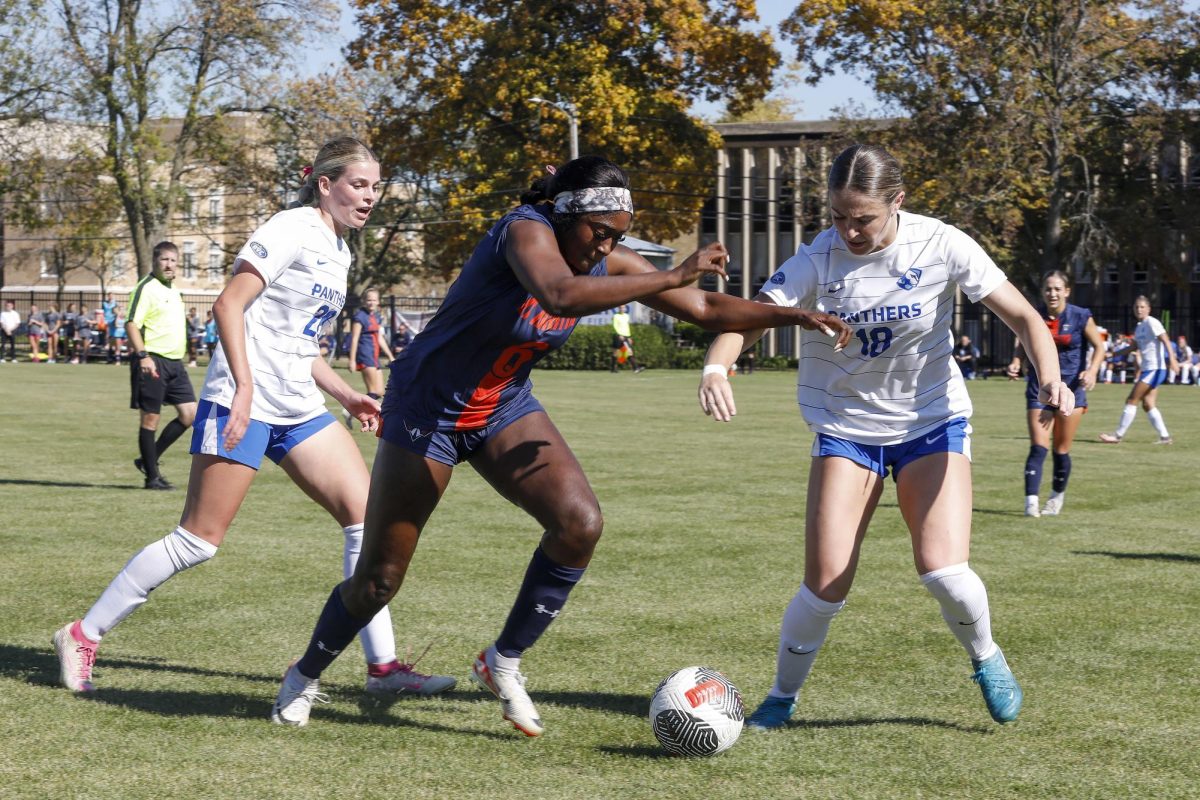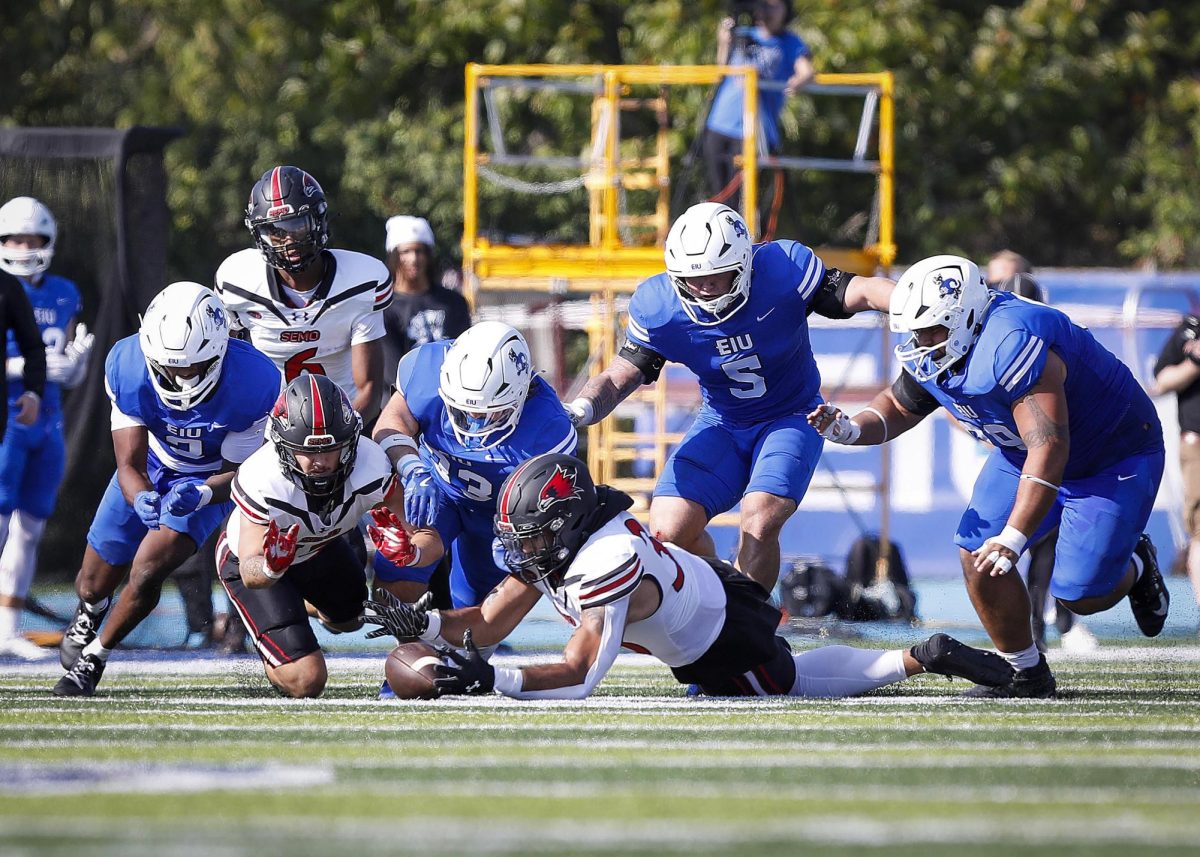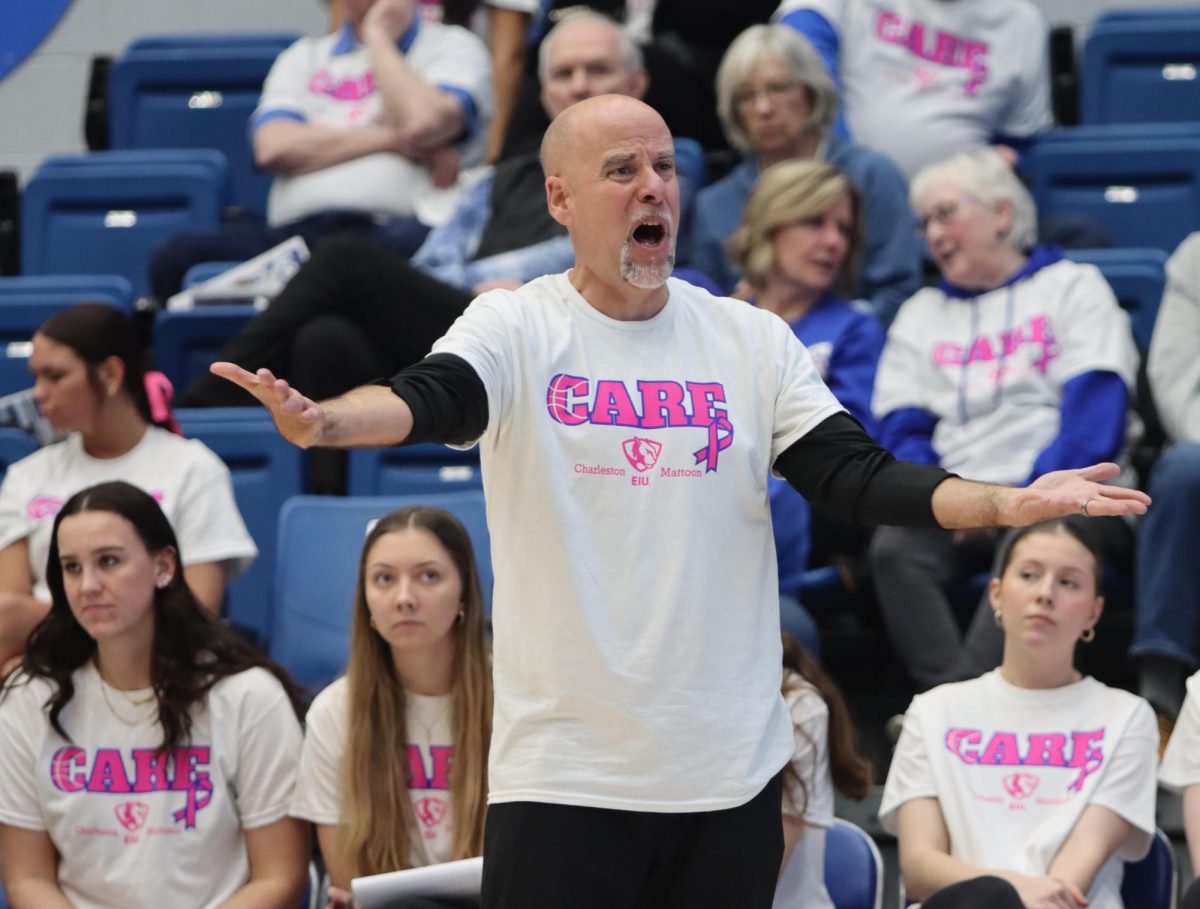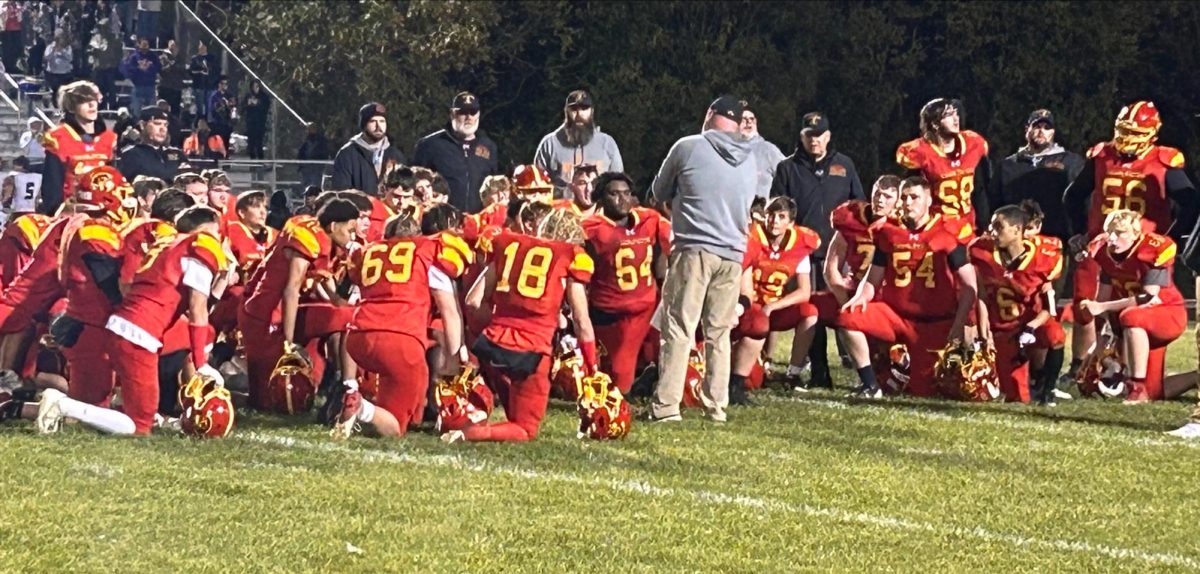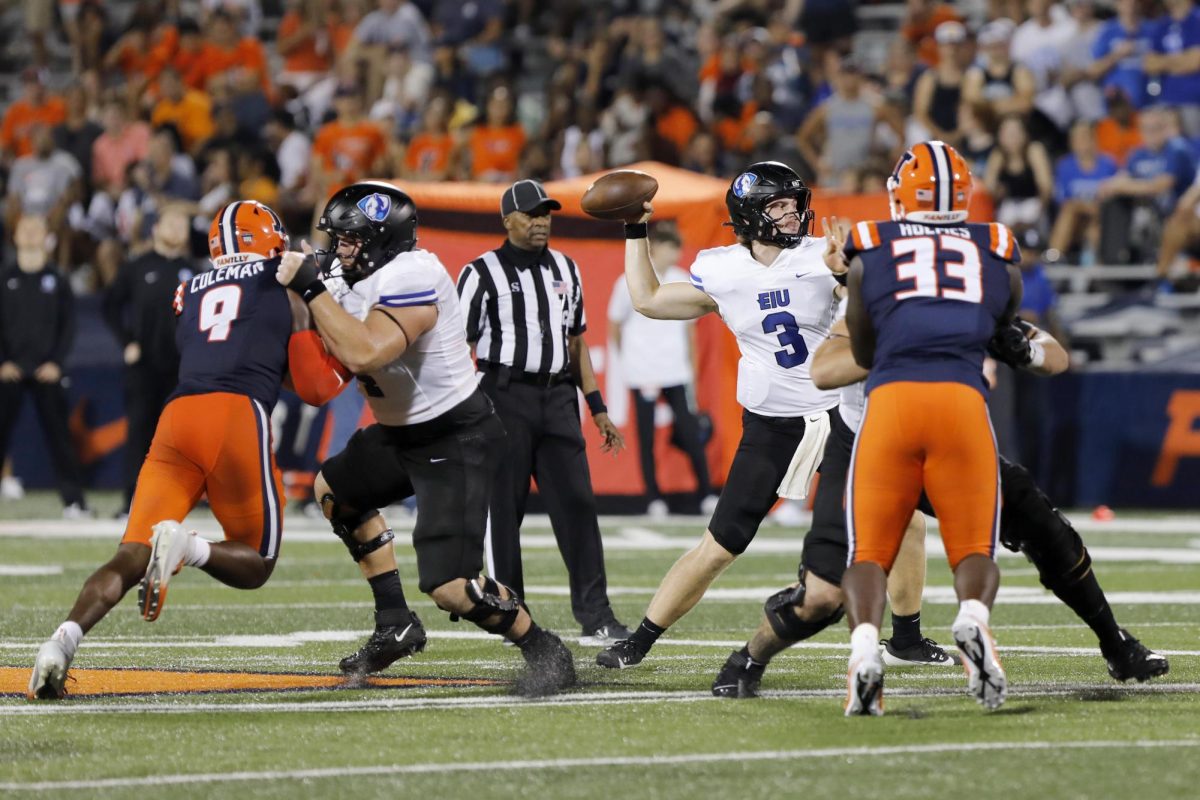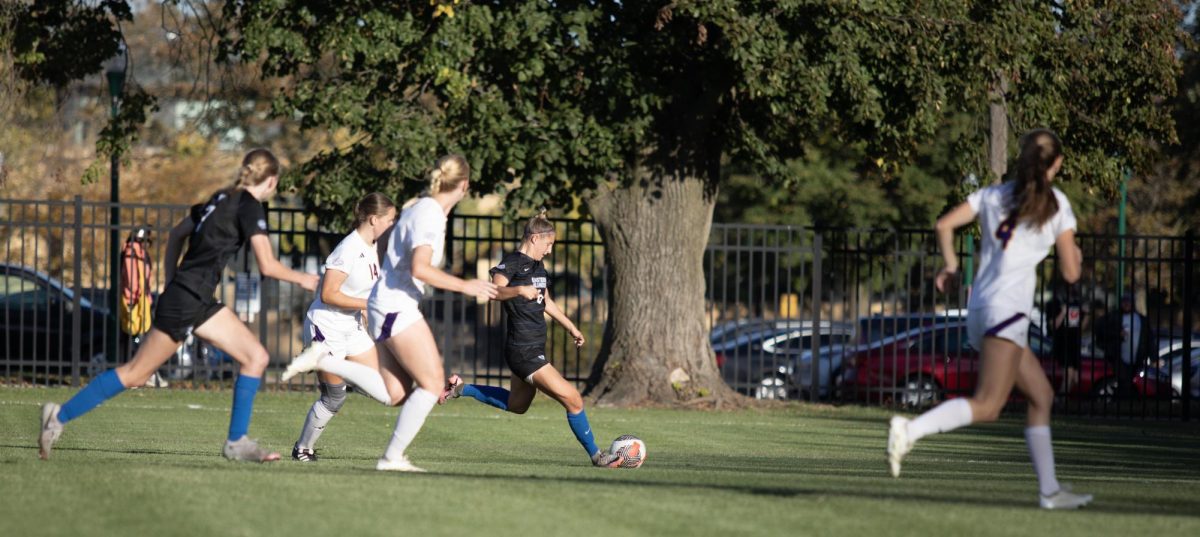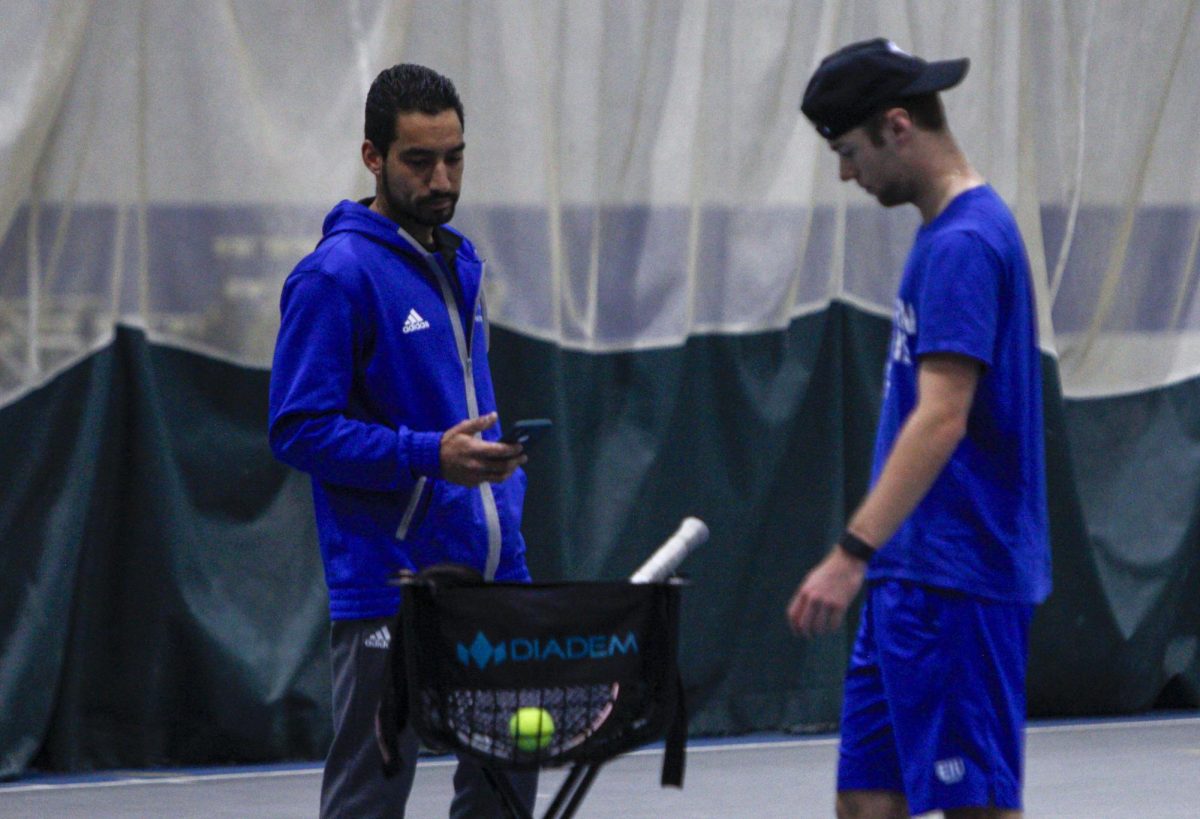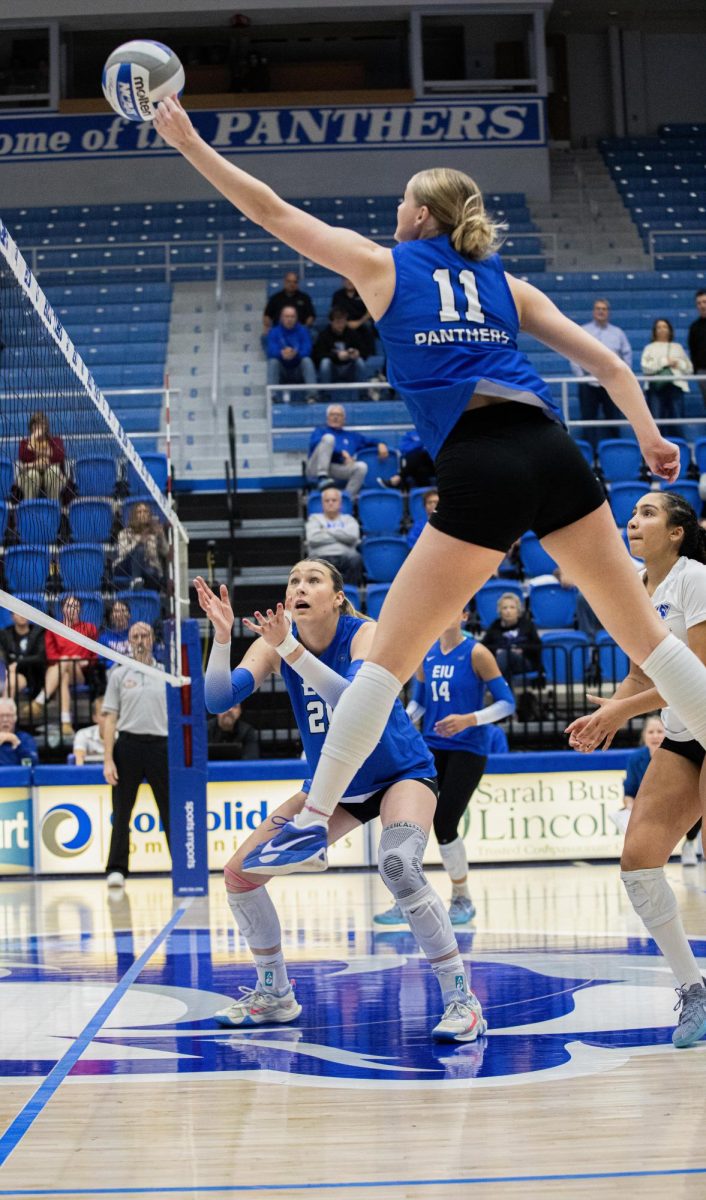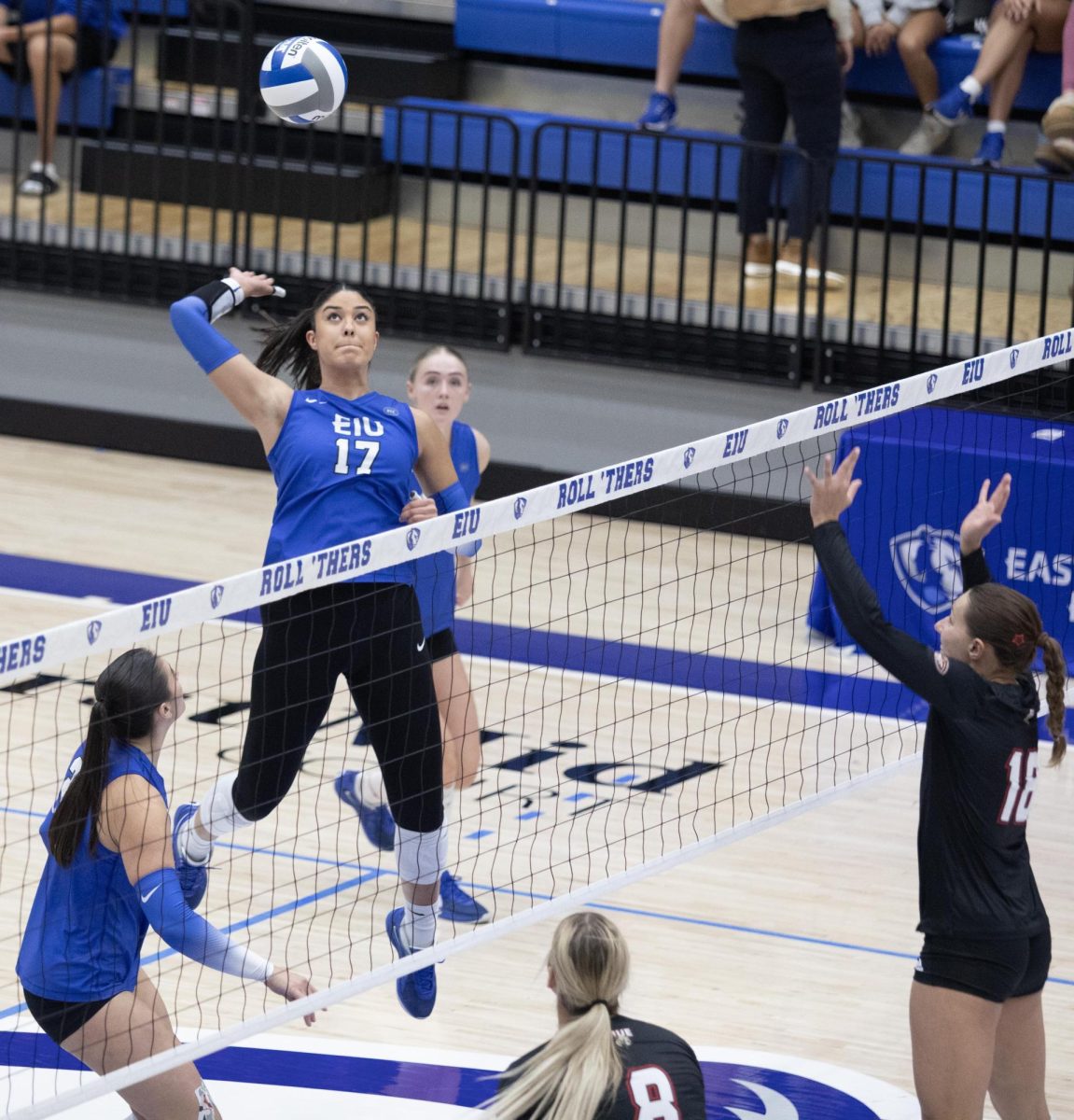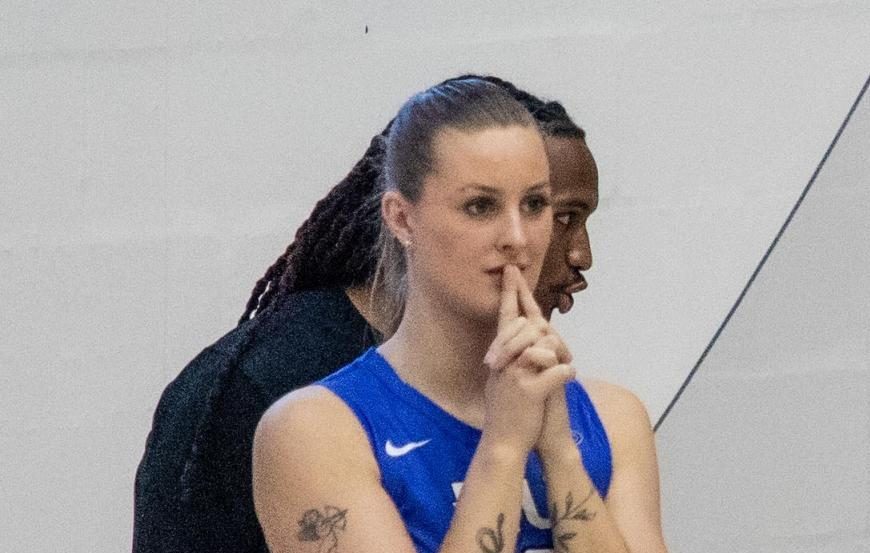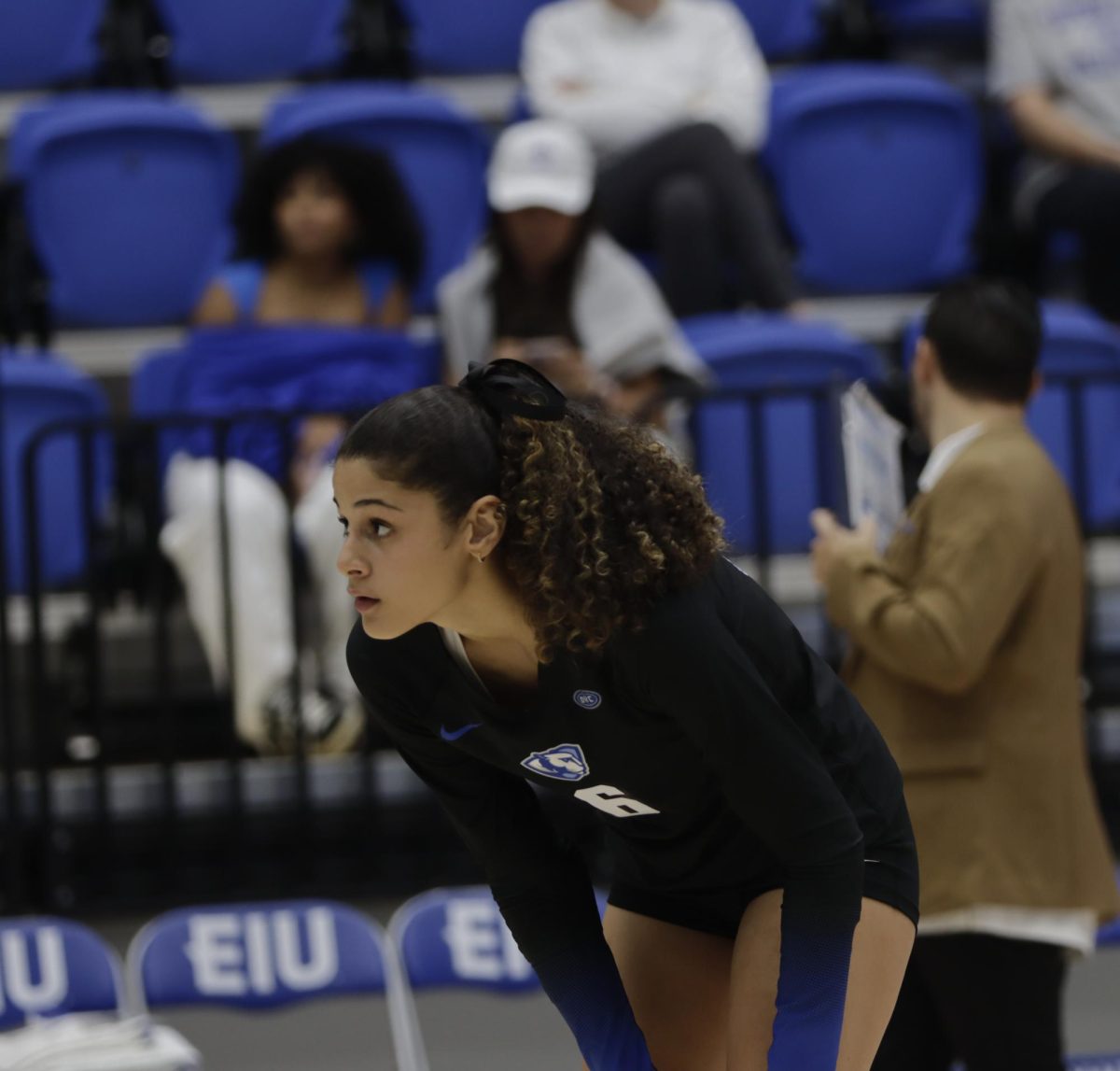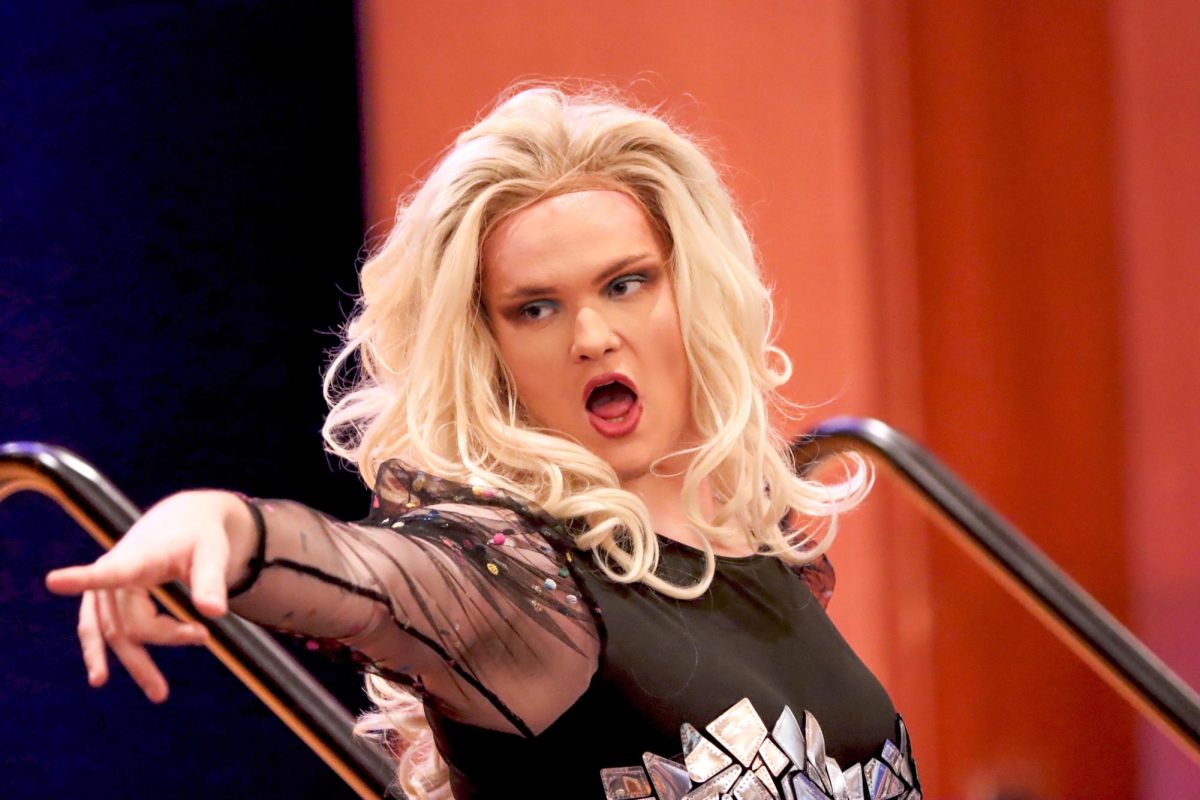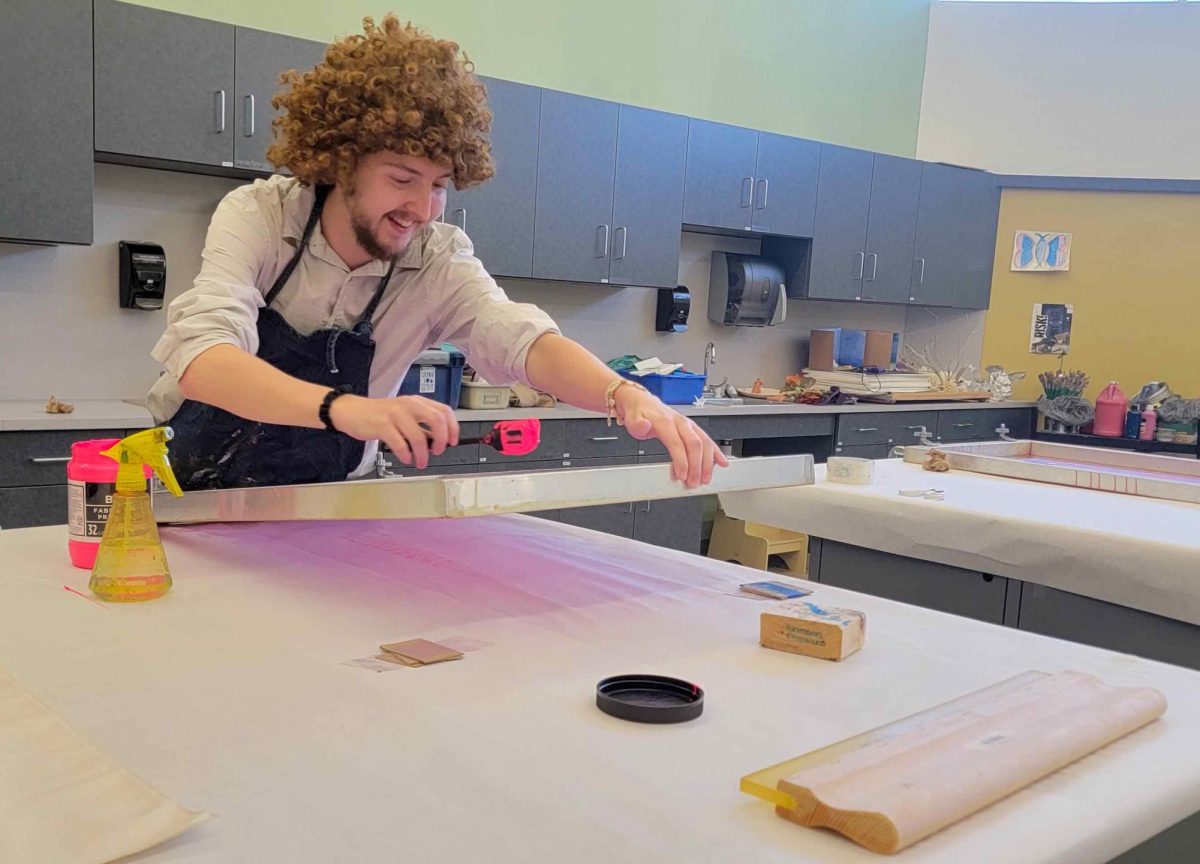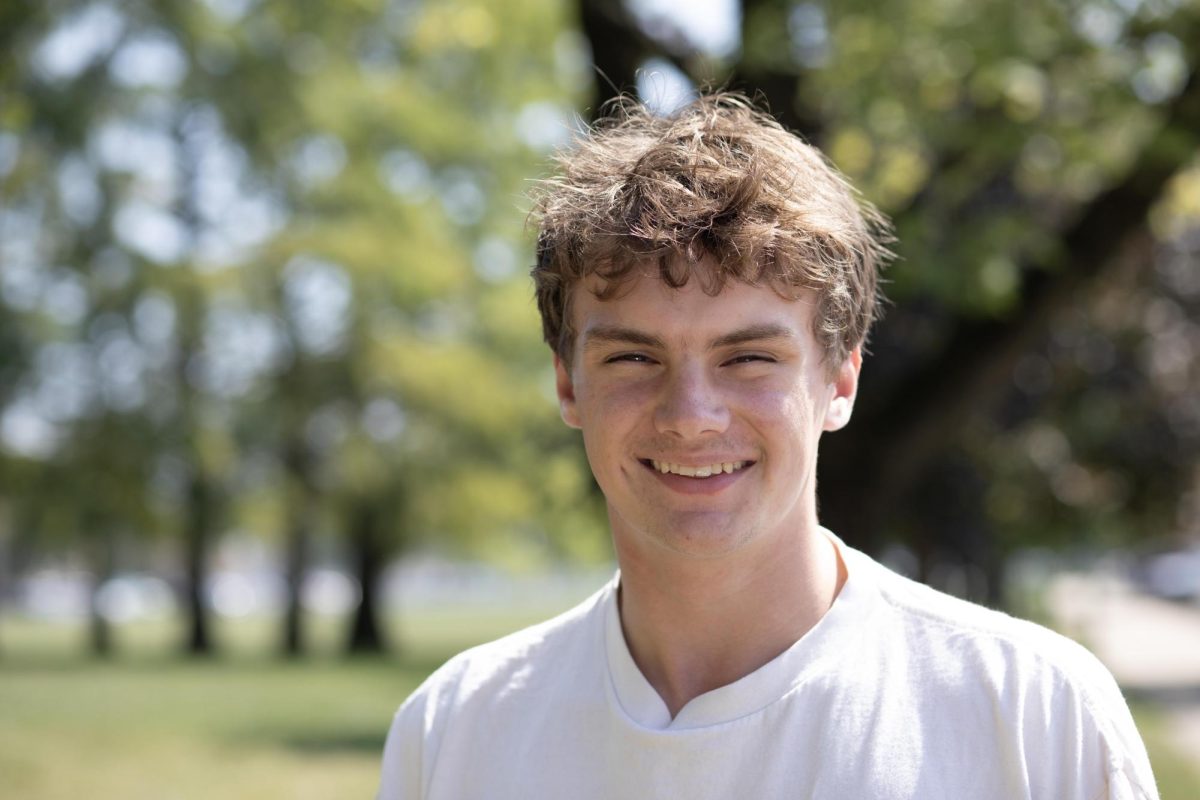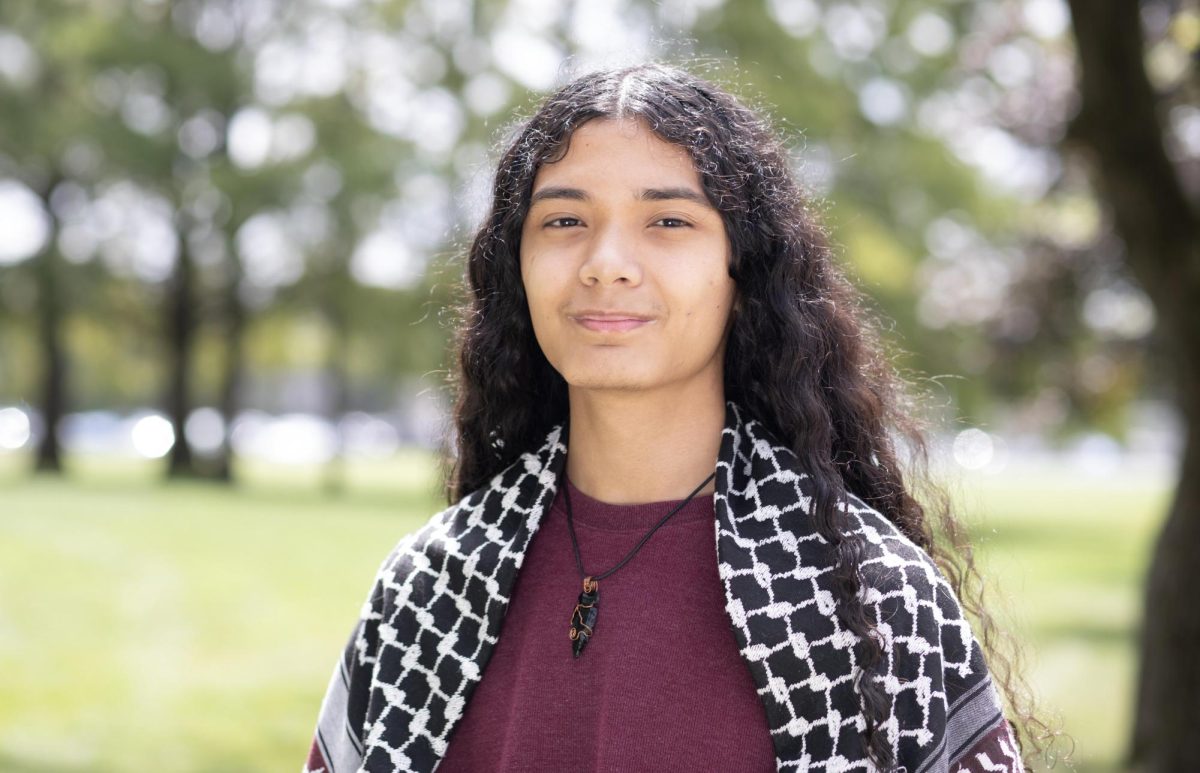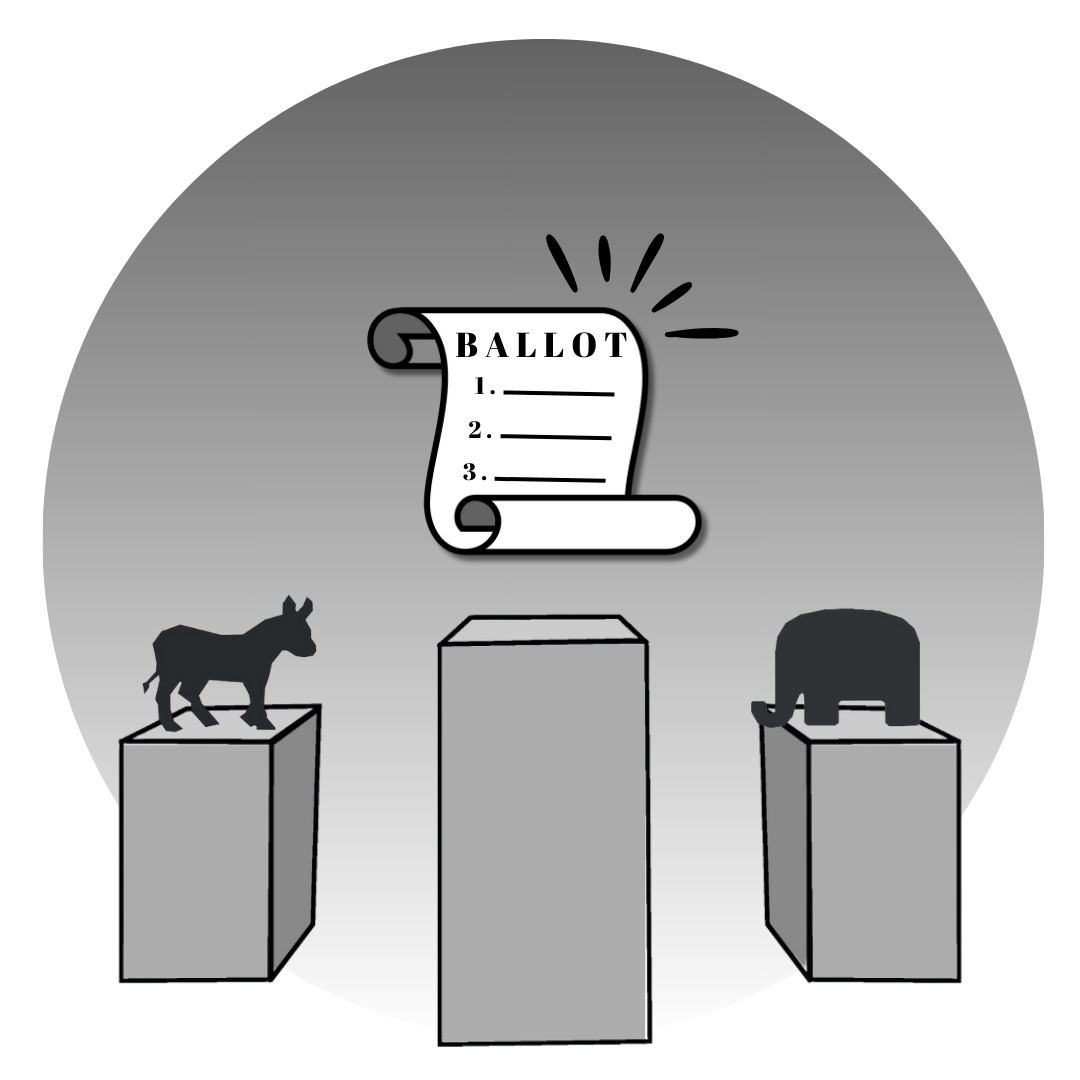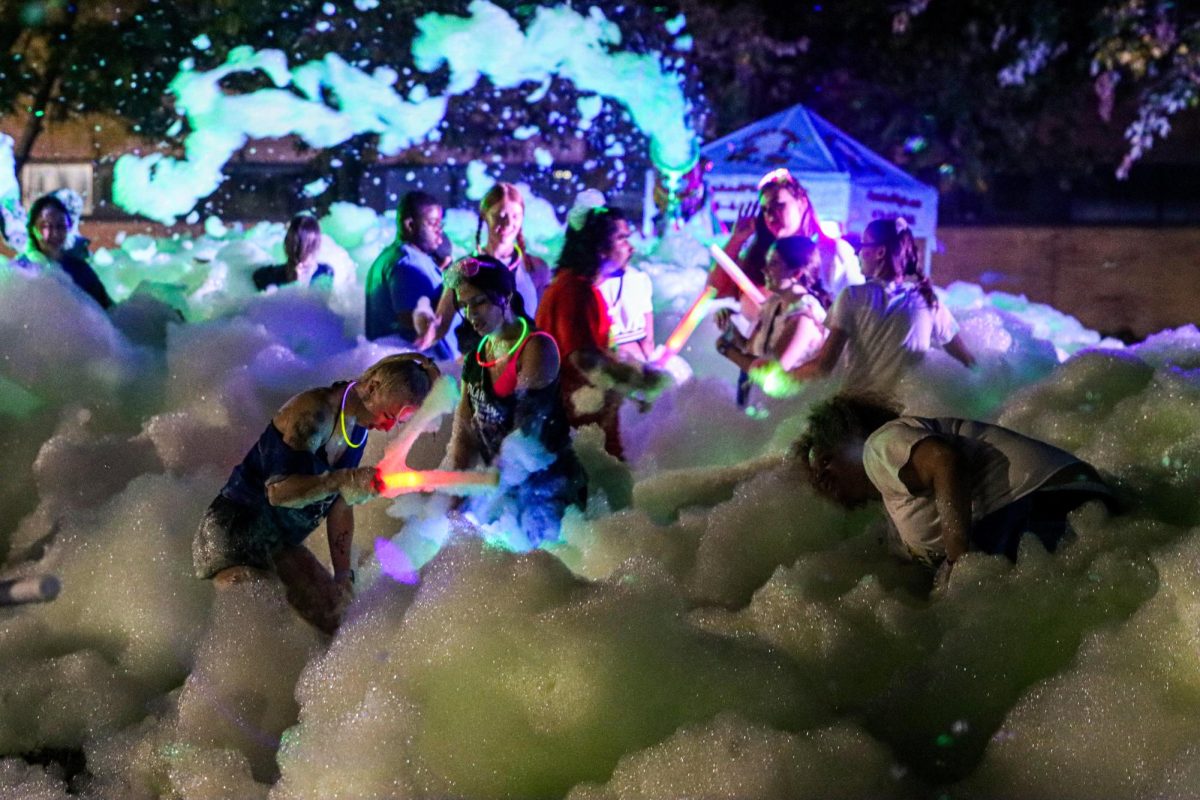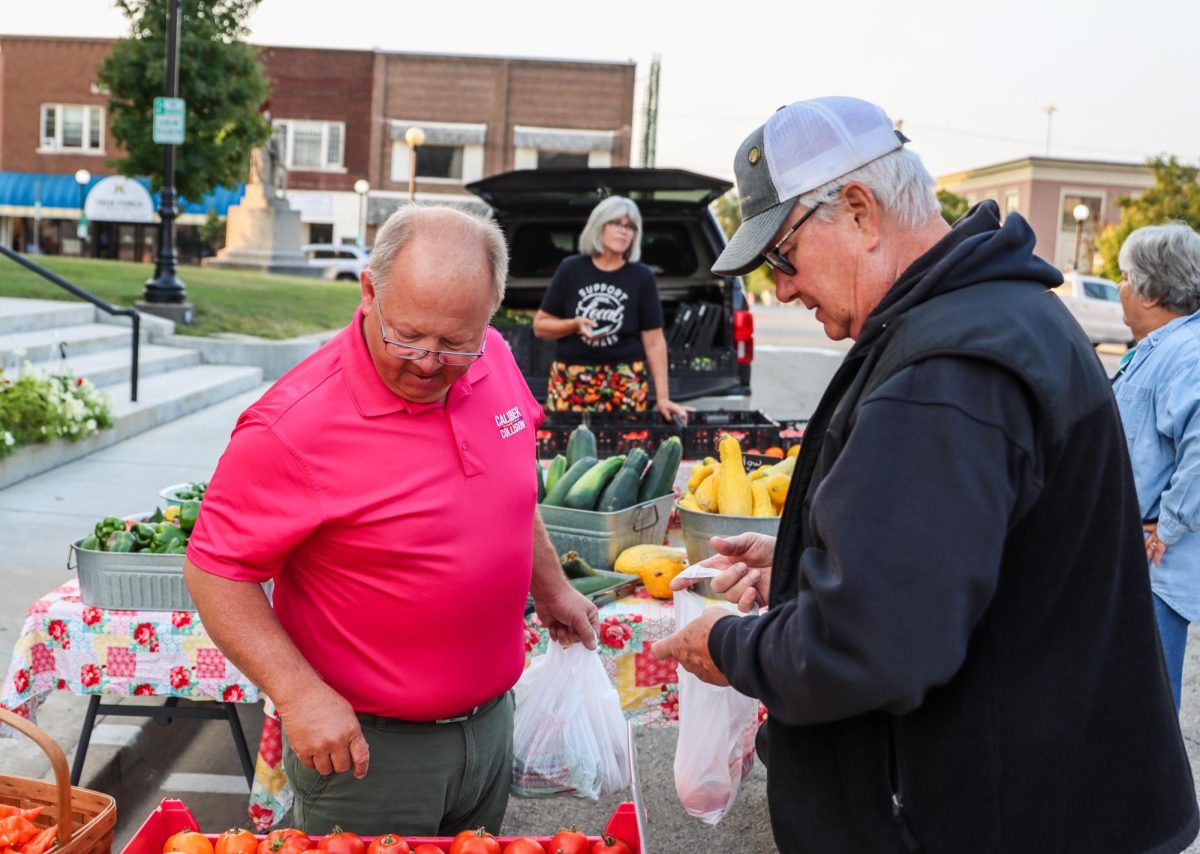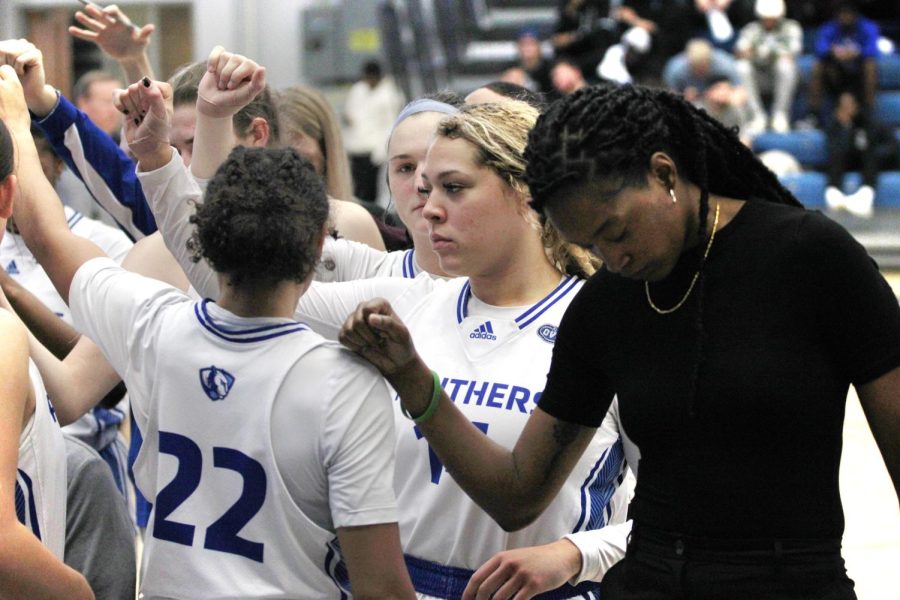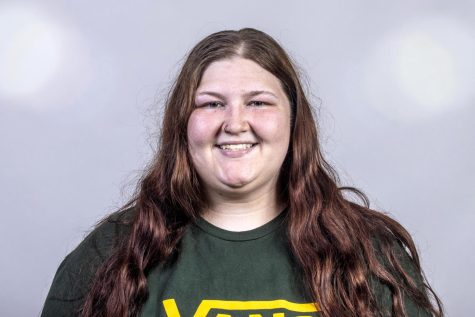Eastern gives Black athletes positive experiences
Assistant coach Mariah King and the rest of the team come together during a timeout at their basketball game vs. Southeast Missouri in Lantz Arena Saturday afternoon.
February 1, 2023
In May of 2022, the NCAA released statistics breaking down NCAA athletes by ethnicity from 2021, finding that 8.8 percent were Black women athletes and 16.5 percent were Black male athletes.
Five current Black athletes here at Eastern shared their stories on what it is like to be a Black Division I athlete on campus.
Jay Pearson
According to The Guardian, in the NCAA, football and basketball are the two sports that include the highest number of Black athletes.
Pearson is a redshirt freshman running back for the Eastern football team. Pearson said that the opportunity to play football at the Division I level means a great deal to him.
“It means a lot actually because I’m doing something that a lot of Black males can’t even get the chance or opportunity to reach and for me, getting the chance to play and attend a D1 school, means a lot to me and my family,” Pearson said.
There is quite the transition from being a high school athlete to being a Division I athlete and for Pearson, he said that he is treated the same as other Black athletes on campus.
“In high school, I was getting treated like a celebrity but I was also still getting treated with respect as any other black athlete but in college, I just get treated like any other Black athlete,” Pearson said.
There are many Black athletes, at all levels, that have become mentors for many athletes and non athletes. Pearson said that for him, Buffalo Bills safety Damar Hamlin is the athlete that he looks to.
“I look to the neighborhood hero Damar Hamlin because, for one, I grew up with him and I watch how he took care of the neighborhood and give back to all the people from the hood,” Pearson said.
Diego Oliver
Oliver, like Pearson, is a member of the Eastern football team. Oliver is a redshirt freshman defensive back.
Oliver said that being a Black athlete on campus forces him to take another approach that is distinct from white athletes.
“It’s been positive in most ways but being a Black athlete, you’ll always have to do some things a little different,” Oliver said.
Being a Black Division I athlete gives Oliver a sense of accomplishment.
“It means we have beat all the odds that have been stacked against us and proved everyone,” Oliver said.
Oliver also chose another professional football player as someone he looks to for guidance.
“Greg Newsome II, who grew up in Chicago, went to Northwestern, and is now on the Cleveland Browns,” Oliver said.
Joel Barrows
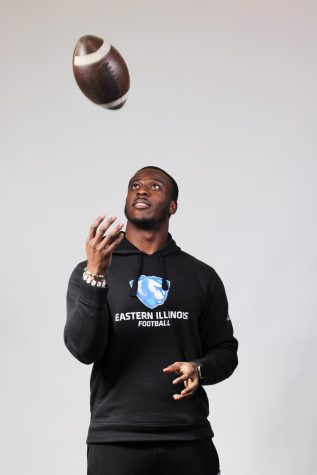
Barrows is also a part of the Eastern football team as a defensive lineman. He said that his experience as a Black athlete on campus has been optimistic.
“I think my experience here as a Black athlete has been a positive one,” Barrows said. “I’ve made a diverse group of friends and haven’t seen many racial issues within the athletic department.”
Both Pearson and Oliver said that Black athletes on campus get positive recognition and representation but Barrows feels differently.
“I think the majority of the recognition we get occurs when there is a situation that causes racial controversy within society,” Barrows said.
Barrows said that the transition from high school to a Division I football program has opened his mind to fellow athletes coming from different backgrounds.
“In high school, my team was predominantly Black and the majority of us came from similar situations. Being in this environment has allowed me to develop as a person and be more open to experience and relating to people who come from a different walk of life.”
Barrows agreed with his fellow teammates, saying that playing at the Division I level as a Black athlete is nothing short of a blessing.
“Being a Division I athlete in general is a blessing and something that I am greatly appreciative of,” Barrows said. “I believe being a Black Division I athlete has afforded me some opportunities that I otherwise wouldn’t have.”
Instead of focusing on just one Black athlete, Barrows said that he looks to all.
“I look up to all Black athletes regardless of level because we are actively taking steps to better ourselves and personal situations,” Barrows said.
In order to focus on Black female athletes, two of Eastern’s women’s basketball players spoke on their experiences being a Black female athlete at the Division I level.
Senior guard Lariah Washington and sophomore forward Taris Thornton both said that they have had positive experiences at Eastern.
“My experience at EIU as a Black female athlete has been very positive,” Washington said. “The community at EIU has always been super welcoming and supportive, and it has always felt like a second home to me.
Thornton agreed, saying “I feel like a lot of people try to lift you up and encourage you to be the best you can. I just feel like Eastern as a whole doesn’t tolerate discrimination”.
A common issue in sports is the lack of recognition for Black athletes, to which both Washington and Thornton believe Eastern is making progress towards.
Thornton believes that Eastern is working hard to stand out, and that Black athletes are getting the recognition they deserve.
“I feel that EIU does show off and represent our Black athletes that are making an impact towards the school.”
Washington added to Thornton’s response, “I constantly see positive and congratulatory announcements of Black athletes on EIU’s social media,” she said, “they do a great job at recognizing all athletes for their accomplishments.”
In September of 2022, a Zippia report showed that 78 percent of basketball players are white, while 6.8 percent are Black or African-American, which shows that in order to be a Division I athlete, it is almost 11 times more likely that you will succeed as a white athlete, rather than if you are a Black athlete.
Zippia also found that only 23 percent of basketball players are female, which only adds to the difficulty of being a Black Division I athlete.
In regards to the difficulty of the sport they are playing as a Division I athlete, both Thornton and Washington say that the time working on their sport has drastically increased.
“You have athletes that spend their whole lives on the sport.” Thornton said.
Washington takes a bit of a different angle.
“There is a lot more responsibility, both on and off the court,” she said, “As a Black female athlete, it is important to lead in a positive way so that I can be someone young Black girls can look up to.”
Washington and Thornton also made it clear what it means to them to be a Black female athlete at their level, and how important it is to them.
“It is a blessing to be a Division I athlete,” Washington said. “Being in this position gives me a larger platform for young black girls to look up to, and shows them that they can do it too and become a Division I athlete.”
“It means a lot to me because it has always been a dream for me, and I’m one of the only female athletes in my family to go Division I.” Thornton said.
Thornton also adds her personal reasoning for how much it means to her.
“I have little sisters that look up to me and I try to stress to them how special it is to be a Black girl, and how much hate you get for being a female and being Black, and actually being good at it,” Thornton said.
In the past, there have been few Black athletes that young boys and girls can look up to. Two current athletes, to which both Washington and Thornton each named one, are Lebron James and Stephen Curry.
“Two Black athletes that I have looked up to have been LeBron James and Serena Williams,” Washington said. “Both of them have set a good example on and off the court. They worked very hard, which shows that anyone, Black or white, can make their dreams come true with hard work and determination.”
Thornton’s players to look up to are people she said she’s always admired.
“I looked up to Maya Moore a lot, and when I was younger I wanted to be just like her,” Thornton said. “We had a very similar playing style, and she was just an amazing player overall.”
Thornton said she loves Stephen Curry’s passion.
“He is an amazing player, breaking so many records. I love his passion for the game.”
Washington said that she has not personally experienced anything negative for being a Black female athlete.
“Overall, being a Black female athlete has not made me feel any different than the other athletes on campus,” Washington said. “Throughout my life, I have never had any negative experiences being a Black female athlete, they have all been positive, which I am grateful for.”
Thornton, on the other hand, had a bit of a different experience.
“Growing up a Black athlete I had a lot of people look down on me, doubt me, or tried to look over me,” she said, “I had to prove all those people wrong.”
Thornton also brought up a personal experience she had when she was younger.
“A lot of the parents were jealous that I would win awards and break records. Nothing has ever come easy for me, from then to now,” Thornton said. “It’s all paying off, and I wouldn’t trade my path and experiences for anything in the world. It has made me stronger and keeps me going to keep proving everyone wrong, and loving my family who have always supported me and been there for me.”
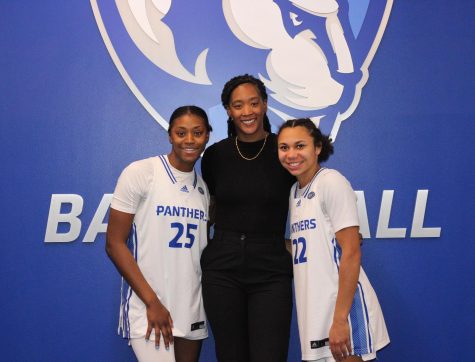
Mariah King, an assistant basketball coach and former player for the women’s basketball team also shared her thoughts on what it was like to be a Black Division 1 athlete and now a Division 1 coach on Eastern’s campus.
She shared that while she was an athlete from 2009-2013 she had a positive experience throughout her time as a player for the women’s basketball team.
“I came here because I liked the coach,” King said. “Going away for the first time, I wanted to be around someone I could trust. I wanted to be around someone like a parent. So, it didn’t matter where, I wanted to know I’d be taken care of. And that’s exactly what the staff provided for me.”
King said that EIU provided a home-like feel for her because of the family feel brought to her as she became closer with her teammates and the staff.
Things became a little bit different as she went on to play professionally overseas.
She did not face any racial issues in her time overseas, but she said it was stressful at times because the staff did not necessarily care about her as a person because they just wanted wins.
“As a professional athlete, I learned really quick that it’s a business,” King said. “It took me some time to understand that it’s the same as college, some coaches didn’t care about me as a person at all. If I’m scoring points and grabbing rebounds, everything was all good. The moment I wasn’t perfect, the sooner they would threaten not to pay me or send me home. It was like if you’re on a contract then you must be like Michael Jordan every single game.”
King recalls the games or moments she was not at her best game that it was mentally exhausting.
“I had no room for error,” King said. “A bit of struggle with perfection every time I stepped on a court was a challenge for me. At times it was mentally exhausting.”
She said although she enjoyed her time as a whole overseas, the fans made it more enjoyable and memorable.
“I loved experiencing different cultures and the fans are just amazing,” King said. “They are so great to you and it’s just really rewarding, especially signing autographs, having people recognize you, and looking up to you that only know from putting a ball in a hoop.”
King said she is happy to be back at EIU as a coach now, but she is the only Black woman on a coaching staff in the entire Eastern athletics department.
“There’s always been a family feel between the institution and I and I really appreciate that,” King said. “Although, I’d love to continue to see women of color come through the doors of EIU athletics. I think we create an option for young black student athletes. It’ll give our present Black female student athletes a sense of home away from home, parental figures, and sister figures.”
She said she is excited to be a coach here because she wants to give the younger generation the same experience she had here.
“They see us more than they do their actual families, so to foster up a sense of belonging, giving them space to feel comfortable and relatable,” King said. “A home away from home, if you will, is big for us.”
King exclaimed that she is proud to have been a Black female athlete and now to be a Black coach both at the Division 1 level.
“I know there’s a lot more work to be done for our younger generation, but I think we’re taking a step in the right direction,” King said. “Speaking up about concerns, having a voice, and being brave enough to step into a room even when no one there looks like you, know that you’re put there for a reason. That’s something to be proud of.”
King said that she feels Eastern does a good job of representing and recognizing its Black athletes.
“I’d say they (the women’s basketball team) get recognition when it’s time to be acknowledged,” King said. “Could there be more? Yes, I’m sure of that. For example, maybe encourage their identity development and nurture their academic engagement and career aspirations.”
She said that she looks up to University of South Carolina’s head women’s basketball coach Dawn Staley who often can be seen promoting and being a voice for Black athletes and staff.
“Dawn Staley does a tremendous job of using her platform to be a voice for Black females in athletics,” King said. “She also does a great job of representing for the culture. I look up to her confidence and willingness to address issues that need to be spoken about no matter what others may think.
King said her favorite quote by Staley is “I understand that my success isn’t about championships – it’s about bringing together people who were once, and in some ways still are, divided. It’s bigger than basketball.”
King is only in the beginning of her coaching career. As time goes on, she hopes to bring more to EIU’s program and wants to see Eastern continue to build on their recognition and representation of its Black athletes and coaching staff.
The DEN sports staff can be reached at 581-2812 or dennewsdesk@gmail.com



